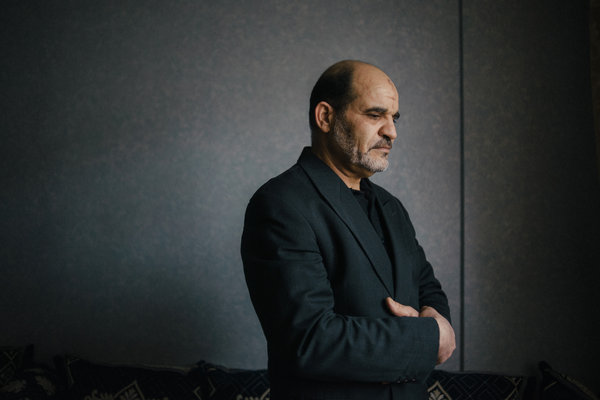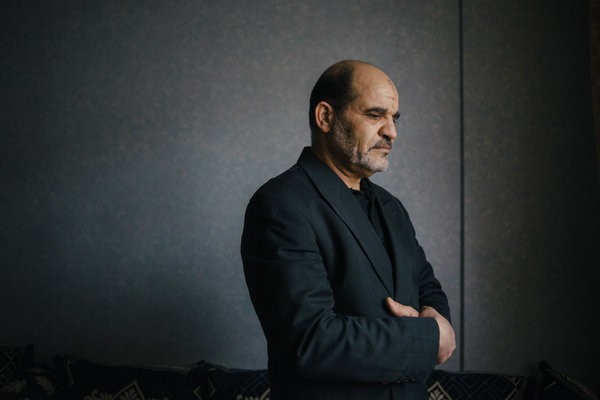
By: KIMIKO DE FREYTAS-TAMURA
Source: The New York Times
Salah Hamidi describes himself as a piece of meat on a cutting block, being whacked by a butcher.
As a Muslim chaplain in a nearby French prison, Mr. Hamidi, 50, said he felt caught between dueling responsibilities: offering spiritual guidance to the 600 or so Muslim inmates, while also helping the prison administration detect and deal with any signs of fomenting radicalization.
Muslim prison chaplains “are caught in the middle, between the cutting board and the cleaver,” he said, pointing to a slab of meat hanging at a local butcher here. Viewed with suspicion both by inmates and by the prison administration in nearby Villepinte, “I need to manage the two at the same time, and it’s not easy,” he said, frowning and rubbing his forehead.
In the aftermath of the January killings at the French satirical weekly Charlie Hebdo and an attack on a Jewish supermarket by Islamist extremist gunmen, the government is turning to Muslim chaplains to help prevent the spread of radicalization in prisons. Two of the killers met in prison a decade before the attacks and are believed to have turned to terrorism during their detention.
In January, Prime Minister Manuel Valls pledged to educate 60 Muslim prison chaplains to help combat radicalization in the prisons — part of a wider government plan that includes creating about 2,700 jobs to combat terrorism, recruiting intelligence analysts, increasing the number of judges dealing with terrorist offenses and adding prison personnel.
But there are too few Muslim chaplains, and despite efforts to hire more, it takes time, and the vetting process is laborious.
It was only last year that the prison in the Paris suburb of Villepinte, one of the most overpopulated in France, appointed two Muslim chaplains to help Mr. Hamidi.
For the 40,000 or so Muslim inmates in France — laws on secularism mean there are no official figures by religion, but they are estimated to be 60 percent of the 67,000 inmates in French prisons — there are about 182 Muslim prison chaplains, according to Moulay El Hassan El Alaoui Talibi, the national Muslim chaplain for prisons. There are about 562 Christian chaplains, a disparity largely attributed to the country’s Roman Catholic history and traditions.
The strict laws on secularism also mean that prison chaplains of any faith do not have professional status, and so cannot legally discuss social and political issues, such as jihad or foreign intervention in the Middle East, freely with younger inmates.
Mr. Hamidi said he was aware that there were inmates at his prison in Villepinte who were attracted to the Islamic State. “But they keep it well hidden,” he said. “It’s true, sometimes they will start talking about how we are in a society based on differences, racism, etc., but they’re not going to openly say they’re going to Syria or do jihad.”
His aim, he said, “is to make these people understand that they took religion blindly or that they took instructions from somewhere blindly, and that maybe they need to re-examine what exactly is religion.”
Still, he said that he empathized with the inmates, most of whom are young and jailed for minor offenses like selling drugs and petty theft. Two-thirds of the prison’s 953 inmates are Muslim. “Of course, it’s true, they’ve committed crimes,” Mr. Hamidi said. “But consider a youth who has reached the age of 20, 22, 25, 30, and that he’s been looking for jobs everywhere. He doesn’t find any. Poverty pushes him to derail in his life.”
“Have you seen a doctor, a lawyer, someone in a good situation give it all up to do jihad in Syria?” he asked. “I don’t think so.”
Sometimes the need for cash that led to prison also makes them vulnerable to becoming radicalized in prison, Mr. Hamidi said, adding, “They get some sort of financing from outside.”
Muslim chaplains have a delicate, difficult task, said Farhad Khosrokhavar, a sociologist at the École des Hautes Études en Sciences Sociales who studies radicalization in French prisons. “There is a type of self-censorship that is going on,” he said. Inmates, in turn, are frustrated because they feel they are not understood. The chaplains “are caught between a rock and a hard place,” he said, and they and inmates “don’t understand each other.”
Mr. Hamidi, who was born in Gabès, Tunisia, but has lived in France for 30 years, works several days a week at the prison, when he is not working full-time as a nurse’s aide at a retirement home. He deals with at least 90 inmates a month individually and sometimes leads Friday Prayer in the prison’s multipurpose room, donning different-colored djellabas for the occasion and using a mix of Arabic and French. “Sometimes I need to shout to wake them up and get the message through,” he said.
A well-known figure among the people in this small city, where he is stopped on the street with greetings and handshakes, he began serving as a chaplain at the prison in 2003 as a volunteer, at the request of Mr. El Alaoui Talibi, because the lack of Muslim chaplains was acute and urgent. Trained as a mechanic in Tunisia, Mr. Hamidi studied to become a paramedic in Paris but dropped out because he could no longer afford to pay for his studies.
“Life is difficult in France,” he said. “I fought, fought, fought, but in the end I really found myself in need of a job.” Mr. Hamidi later worked as a computer programmer and in the export business. Married with no children, he took up nursing again.
He received formal training from the Grand Mosque of Paris in 2010, the year it began offering two-year programs for prison chaplains. But for the first five years he was unpaid, he said, and occasionally used his own money to buy Qurans and prayer mats, which some inmates requested. Now, he said, he earns 247 euros ($281) a month.
“When I started, the Muslim chaplaincy was completely ignored,” he said, rubbing his zebibah, Arabic for raisin, a callus formed as worshipers press their foreheads into the ground during prayer. “When I told the prison authorities about my being a Muslim chaplain, they replied, ‘Since when does that exist?’ ”
He faced other hurdles. “I was badly received by the prison administration,” he said.
At times, when he went to work, for example, he said he was made to wait at the gates for a long time before being allowed inside. He also said he fought to have halal food brought to the prison canteens, which started serving it only a year and a half ago. He also pushed to have packages sent to inmates during Eid festivities, and made sure inmates of other faiths received them as well.
With the addition of the two new Muslim chaplains last year, his workload has become a little easier, he said. Still, “it is mentally tiring to act as a spiritual guide and religious scholar, but also to shout at inmates like a father does to a son,” he said.
“It’s true the majority of the youth talk about the same thing — if you’re Arab or black, you’re excluded from society,” Mr. Hamidi said. “So I tell them, ‘Well, I’m Arab, I’m Muslim, I’m proud of it, and I try to be like everyone else, not to disturb or assault anyone.’ And I tell them that with time, everything comes naturally.”




